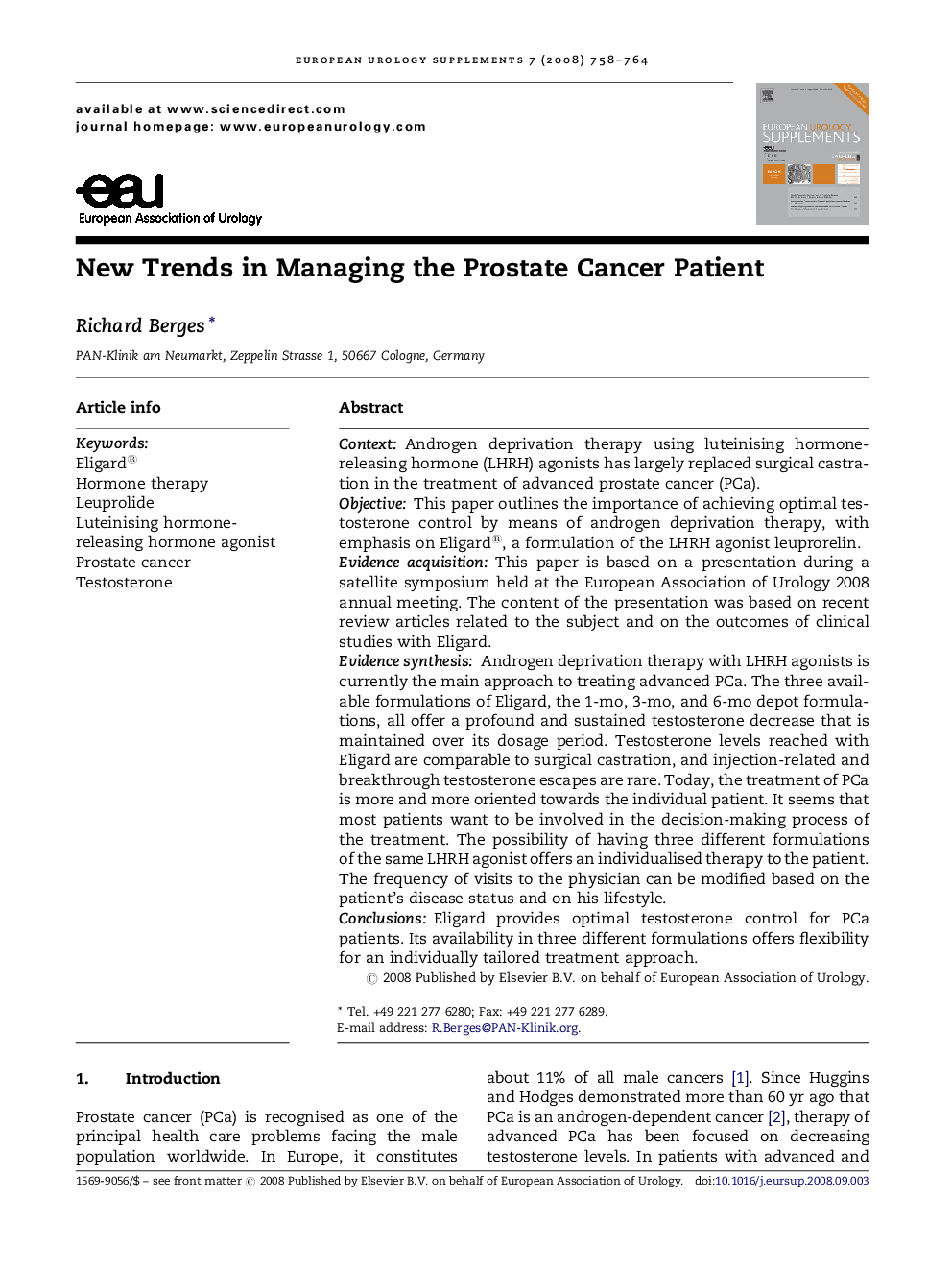| Article ID | Journal | Published Year | Pages | File Type |
|---|---|---|---|---|
| 3934427 | European Urology Supplements | 2008 | 7 Pages |
ContextAndrogen deprivation therapy using luteinising hormone-releasing hormone (LHRH) agonists has largely replaced surgical castration in the treatment of advanced prostate cancer (PCa).ObjectiveThis paper outlines the importance of achieving optimal testosterone control by means of androgen deprivation therapy, with emphasis on Eligard®, a formulation of the LHRH agonist leuprorelin.Evidence acquisitionThis paper is based on a presentation during a satellite symposium held at the European Association of Urology 2008 annual meeting. The content of the presentation was based on recent review articles related to the subject and on the outcomes of clinical studies with Eligard.Evidence synthesisAndrogen deprivation therapy with LHRH agonists is currently the main approach to treating advanced PCa. The three available formulations of Eligard, the 1-mo, 3-mo, and 6-mo depot formulations, all offer a profound and sustained testosterone decrease that is maintained over its dosage period. Testosterone levels reached with Eligard are comparable to surgical castration, and injection-related and breakthrough testosterone escapes are rare. Today, the treatment of PCa is more and more oriented towards the individual patient. It seems that most patients want to be involved in the decision-making process of the treatment. The possibility of having three different formulations of the same LHRH agonist offers an individualised therapy to the patient. The frequency of visits to the physician can be modified based on the patient's disease status and on his lifestyle.ConclusionsEligard provides optimal testosterone control for PCa patients. Its availability in three different formulations offers flexibility for an individually tailored treatment approach.
